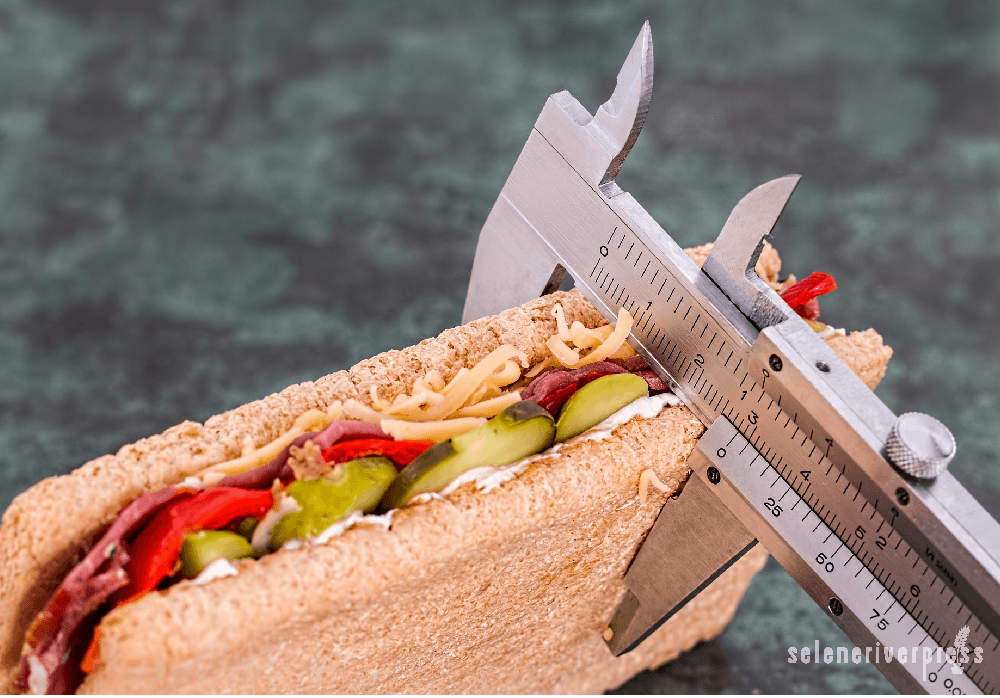The argument that weight loss is merely a matter of taking in fewer calories than you exert throughout the day has never really sat right with me. It seems to be an oversimplification of an issue that too many people struggle with: carrying excess weight.
Don’t get me wrong. I love the simplification of most any topic, but only when it’s productive. Only when it helps us take charge of the matter at hand and gets us to our end result with ease and grace. The myth of “calories in, calories out” doesn’t achieve that. It ignores too many key factors in the whole process of nourishing our bodies. And it comes with a hefty price tag.
The daily recommended calorie intake in the U.S. is 2,700 for men and 2,200 for women. For argument’s sake, let’s use these numbers as we take a look at a few other factors that influence our overall body composition.
A calorie is a calorie no matter where it comes from. That seems logical. Right? Sure it does. But exactly what the calorie brings to your body is even more important. For example, what if the 2,200 calories I provided my body with today came entirely from brownies? In theory, an entire day of eating nothing but 2,200 calories worth of brownies may sound like heaven, but it doesn’t give my body much nutrition to work with. Compare that to 2,200 calories worth of organic fruits and vegetables, soaked grains, and pasture-raised proteins cooked in healthy fats.
A calorie is a calorie when you look up the definition in your dictionary. However, your body is smarter than that. It knows the difference between the day you ate all the brownies and the day you nourished your body with vitamins and minerals and everything else it needs to function like the magnificently complex machine that it is.
How efficient are your metabolism and other body functions? Whatever food we choose, once we swallow it our body takes it from there. Absorbing what it needs, where it needs it, and allowing the rest to move through your digestive system until it’s flushed away, literally. Of course, this assumes that each system in your body is in good working condition and functions as it should. But when there’s a hiccup along the way, it can greatly affect everything else, including your body weight. For instance, Dr. Royal Lee discusses the role of the endocrine system (specifically the pituitary gland) and weight loss in his 1954 article “Obesity and the Physiology of Osmotic Transfers.” Every system and function in your body is highly dependent on the other systems and functions doing what they’re supposed to do. A breakdown in one impacts others.
Are you eating foods your body doesn’t like? If you look hard enough, you can find evidence to support your love of most any food. The thing is, if your body doesn’t process it well, even the healthiest food only causes you problems every time you eat it.
I have the perfect illustration of this from my own life. I love coffee. For many years, my morning coffee ritual was something I looked forward to each night as I drifted off to sleep. However, my body isn’t a fan of this habit at all. To convince myself it was okay to ignore the signs my body was giving me, I read all sorts of articles about the benefits of a daily cup of joe.
Reading the articles didn’t make it a reality for me. While these benefits may be true for a good number of people, the only thing drinking coffee did for me was cause inflammation, disrupt my heart rhythms, and give me issues with my digestive system. This “healthy” habit of mine was making me decidedly unhealthy. I’ve switched over to a homemade chai tea latte for my morning ritual, and I feel better in every way. Plus my clothes fit better.
Pay attention to what your body is telling you when you ingest certain foods. If a food causes you distress of any kind, it’s likely working against your weight loss efforts and a whole host of other things.
Do you see what I mean? I’ve discussed less than a handful of reasons why I believe “calories in, calories out” is the great weight loss myth. A focus on eating nutrient dense foods that your body can process with ease and grace makes a whole lot more sense. Throw in a daily exercise routine that you enjoy doing, and your weight loss journey will be much simpler. If you choose this lifestyle, you may not need to count calories at all.
What daily habits are ambushing your weight loss efforts?



